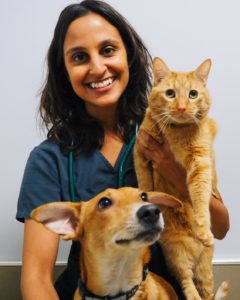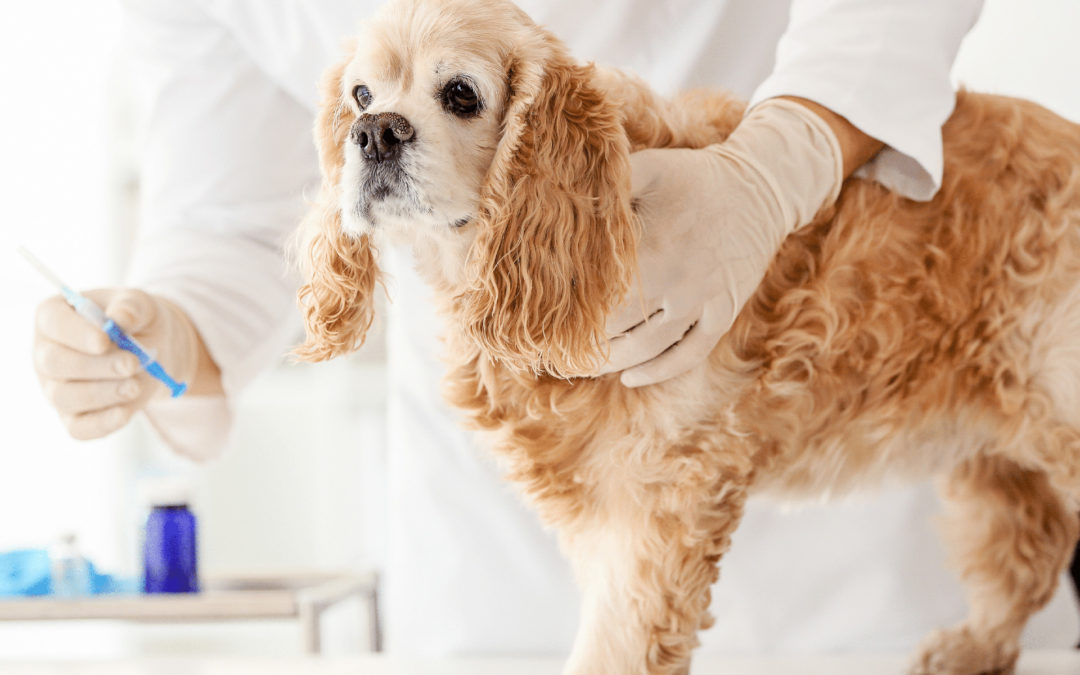When it comes to your dog’s health, accurate information from reliable sources is crucial—especially when it comes to vaccinations. That’s why we’ve sat down with Dr. Shaneez Wallani, a doctor of veterinary medicine, to understand what the Bordetella vaccine is and why it’s important for your dog.
What is the Bordetella vaccine?
Bordetella is a bacteria that is one of the common causes of Canine Infectious Respiratory Disease Complex, an infection of the upper respiratory tract commonly known as kennel cough. Symptoms of CIRDC include cough, malaise (tiredness), reduced appetite, and clear or coloured discharge from the nose or throat. This sometimes is confused with vomit, but it’s more of a productive cough. Vets typically recommend that most dogs receive this vaccination, as it can reduce the development of illness, the severity of illness, and shedding of the bacteria.
How often should my dog get a Bordetella vaccine?
Dogs typically get the vaccine as a puppy. Puppy vaccines usually start around 6 weeks and boosters are usually needed annually. If you travel a lot with your pet, the vaccine is sometimes needed more frequently. Most dogs, however, only need a booster vaccine once per year.
Is there a right time or age?
It’s very important for dogs to get the Bordetella vaccine as puppies. Puppies are more prone to complications, such as pneumonia, from CIRDC if they get sick. Then, annual boosters help reduce the risk of severe disease, if it’s contracted.
If your dog is an adult and has never had the Bordetella vaccine, then the best time to get it is as soon as possible—especially if your pet goes to grooming, daycare, boarding, dog shows, dog parks, etc. Because they are in contact with a lot of dogs they’re more likely to get infected than a dog who doesn’t see other dogs on a regular basis.
I’ve heard that dogs can have allergic reactions to the Bordetella vaccine. Should I worry about that?
Like humans, allergies in dogs are possible to any vaccine but severe reactions are very rare.
If your dog receives the vaccine and experiences facial swelling, hives, difficulty breathing, severe vomiting, or diarrhea, see a veterinarian immediately. If your pup is sore at the injection site, let your vet know and they can provide pain medication if needed. They can also pre-medicate your pup before the next round of vaccines to help minimize discomfort if needed.
What about side effects?
Most dogs who get the vaccine do fine and may just feel a little tired afterwards, or a little sore at the injection site. This usually resolves on its own over a day or so. However, this is the perfect time to give them some extra cuddles and treats.
Speaking of vaccinations, is there any way to calm my dog or prepare them for vaccines?
Great question! I recommend “treat visits” prior to the appointment. These are where you call your vet and ask if your pet can drop by the clinic for a few minutes for pets, treats, and praise from staff. These are done on days when your pet does not need any exams or procedures. It’s especially helpful if you bring your pet’s favourite treats with you, so they think of the vet clinic as a place where good things happen.
Book your vaccine appointment before one of your pet’s meals. They’ll be more excited about the treats since they won’t have a full stomach. Also, the treats are a good distraction from the vaccines.
Clicker training is another way to get a pet used to handling. It helps build positive associations related to examining. You can also do “practice exams” at home so your pup is more comfortable with being handled. In addition, getting your pet used to the car beforehand so they aren’t nervous on car trips is very important.

Dr. Shaneez Wallani has over 10 years of experience across the US and Canada. She has a special interest in pain management, alternative therapies, and behaviour. Additionally, she is certified in Canine Massage Therapy and Low-Stress Handling (Silver Certified). She is also working towards certification in
Canine Acupuncture. She decided to become a vet at the age of 3, after seeing and wanting to help an injured elephant in Kenya.
Dr. Wallani’s dog Niles is a Caribbean street dog, otherwise known as a “pothound” from Grenada. He is filled with the best energy and is a joy to have at The Pooches Playhouse. He always has a great time with all of his friends.
“He’s very energetic and it’s nice having a safe space for him to play and let off his energy with other dogs.”

